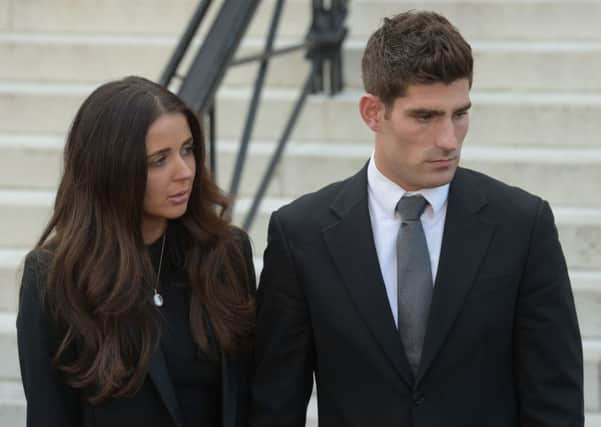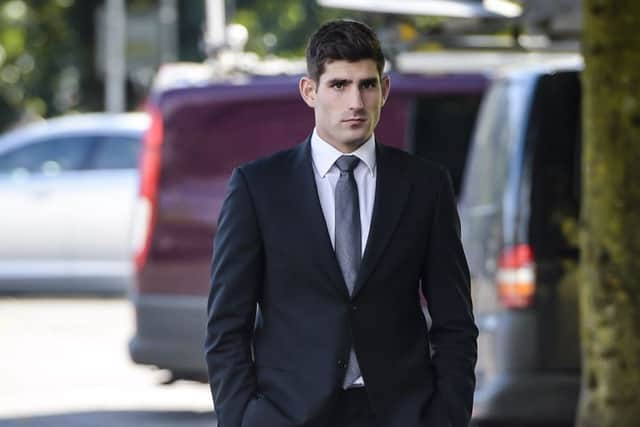After Ched Evans case, will rape victims get more protection in law?


The former Sheffield United player was cleared of raping a 19-year-old woman at a retrial last month, following a five-year battle to clear his name.
In a rare move, the jury at Cardiff Crown Court heard evidence from two men who had sex with the woman around the time of the rape allegation.
Advertisement
Hide AdAdvertisement
Hide Ad

They both gave accounts of her sexual preferences that were similar to the description put forward by Evans at his original trial, supporting his claim that she had consented to sex with him in a hotel room in Rhyl, north Wales.
The evidence led to concern that other women would be put off reporting sex assaults to the police, and former solicitor general Vera Baird warned the case had put Britain back “probably about 30 years”.
The Attorney General, Jeremy Wright QC, said yesterday that the subject was of “concern” and suggested the law and guidance around the admission of a complainant’s sexual history in criminal trials could be reformed.


Advertisement
Hide AdAdvertisement
Hide AdHe told MPs: “There is concern here and we need to accept that that concern is sensible and deal with it.
“We need to understand more about the decision in this particular case, we need to understand whether a change in the law is appropriate, and if not, whether it is sensible to look at the guidance that is given to judges about when this evidence is admissible and the guidance that judges give to juries about how that evidence should be used.”
He added: “We must be confident that the message sent to those who may be currently worried about reporting these sorts of offences is not that they are not encouraged to do so, quite the reverse, they are, and we need to make sure that those messages are clear.”
After Evans lost his first appeal four years ago, his family employed private investigators to gather new evidence about the previous sexual history of the complainant.
Advertisement
Hide AdAdvertisement
Hide AdNormally in trials involving sexual offences, a complainant’s sexual history is not put before a jury. But Evans’ legal team sought permission under Section 41 of the Youth Justice and Criminal Evidence Act to question the complainant at his new trial about her previous partners.
In her summing-up, the retrial judge, Mrs Justice Nicola Davies, drew the jury’s attention to the “similarities” of the way the woman’s other partners described her sexual behaviour.
Following the verdict, the Attorney General came under pressure from Labour to outline what the Government was doing to ensure the case did not deter sex assault victims from coming forward to police.
Shadow solicitor general Nick Thomas-Symonds said there were “grave recent concerns about the admissibility of a complainant’s previous sexual history in rape trials”.
Advertisement
Hide AdAdvertisement
Hide AdHe warned that “single high-profile cases can give rise to wider perceptions about the law” and urged ministers to ensure victims are encouraged to come forward.
Evans had been a hugely popular figure at Sheffield United, but the club faced a public backlash after his original conviction when it agreed to let him train there, an offer it later withdrew.
Olympic champion Jessica Ennis-Hill asked for her name to be taken off the Bramall Lane stand in protest, and a petition urging the club not to re-sign its former player drew more than 140,000 signatures.